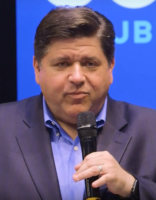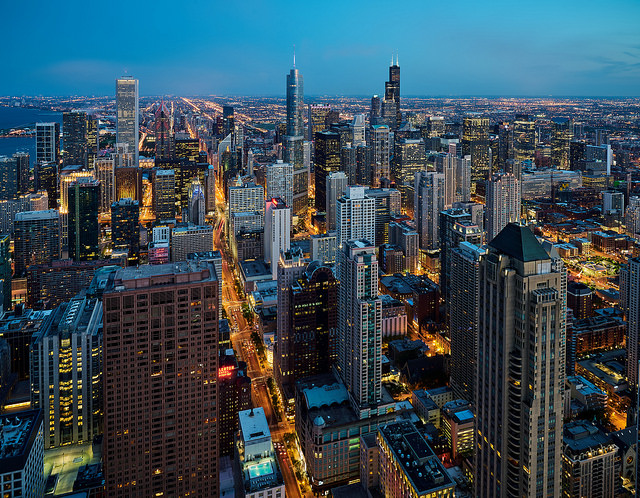It is almost impossible to turn on the tv and not find a show or news conference or even live footage of an ongoing protest over “Black Lives Matter” or “Economic Equality.” The same situation exists with social media platforms, radio broadcast, etc. All sharing the common theme of social equity. While we all seek a solution, the state of Illinois is doing their part by awarding the coveted adult use cannabis business licenses for craft growing, infusion, transportation and dispensaries to social equity applicants by using a scoring system that favors the social equity applicant. We believe in this vision at TGC Group and our dream is to pay it forward.

We see the world, especially for minorities living in poverty, quite differently because of where we come from. “Black Lives Matter” is a movement to save the lives of all people and have human life viewed equally no matter the race of an individual. Economic equality is a totally different fight. Our communities that are impoverished need cash infusions. There needs to be financial infrastructure that recirculates the dollars from the poor communities and that comes from having business owners in the affected community to put their profits back into their community. There needs to be a system of lending that is not based on credit scores and criminal background checks because most people at the bottom will never qualify. An example would be my husband, Christopher Lacy: he went to prison for 3.5 years for growing cannabis back in 2009. He is not a violent man; he never even had a fight in prison. He spent much of his time in prison teaching inmates how to read, write and most importantly, he tried to teach them economics. He is educated about cannabis because he has been intimately involved with this plant and has been growing it for just about 20 years. Yet when he tried to apply for jobs in Illinois for growing cannabis, his invisible barrier starts with the resume. Just think about it, my husband, knows more about cannabis than most people in the industry today and could manage a facility with ease. No one could see his worth because of his background and work experience? This is the same situation with so many others in our poor communities. We know for a fact that there is hidden talent in the impoverished communities and prison system, and we intend to find it and empower these individuals to rebuild what was destroyed by the war on drugs. I speak for all the ghettos when I say this: give us access to the capital and we will get the rest done on our own. Conventional banks have their hands tied with this approach because they are regulated, but private funds have more flexibility. The excess capital needed to rebuild will not come from jobs, it only comes from ownership. Luckily, J.B. Pritzker and Toi Hutchinson are aware of this and hence created the social equity fund to help the social equity applicants fund their projects if and when they are awarded a license. We must find a way to give to the bottom so that the dollars can trickle up. Trickledown economics is kind of like that movie “Platform” on Netflix. There are never enough resources to get to the bottom because the people sending the resources down have no idea how to get them to the bottom floors of society. Trickle up economics can start at the very bottom rungs of society and still will reach to this highest level of the economic system because its built in such a way that it will inevitably get there.

These new licenses, literally pathways to financial freedom if operated correctly and efficiently, are revenue machines capable of changing our community. This change does not come from providing jobs (although jobs do help and will be available), but by providing capital to rebuild. These funds can provide scholarships, business loans, even small infrastructure projects can get accomplished via the tax revenue generated by the local governments. We have already made a written commitment to give a portion of net margins to the village. Capital in the right hands can make dreams come true. In theory, poverty can be solved. Poverty is not a prerequisite to the American way of life. That is why we were so proud to get zoning approval by our village. They see what we see. We can change neighborhoods like Beacon Hill. The dollars must recirculate in the community. Wherever you see high poverty rates you see high crime rates. This is not a coincidence. If you can lower the poverty rate you can lower the crime rates. This raises the quality of life for everyone. We see the state is on board, the county is on board, the Village of Park Forest is on board and the citizens of the community are on board. Now all we need is the license and capital to get the resurrection started.
 Unlike other applicants, we were only capable of applying for one license for a craft grow facility. Some may see this as a disadvantage because only 40 licenses will be issued for this purpose. I wish we could have applied for more to increase our odds, but resources were scarce and applying was not cheap. We decided to stick with the efficient market theory and put all our eggs in the one basket that we know we can carry and be successful with. Without the help of Justice Grown, we would’ve never completed the application so shout out to them and anyone else that helped “true” social equity applicants apply.
Unlike other applicants, we were only capable of applying for one license for a craft grow facility. Some may see this as a disadvantage because only 40 licenses will be issued for this purpose. I wish we could have applied for more to increase our odds, but resources were scarce and applying was not cheap. We decided to stick with the efficient market theory and put all our eggs in the one basket that we know we can carry and be successful with. Without the help of Justice Grown, we would’ve never completed the application so shout out to them and anyone else that helped “true” social equity applicants apply.
The wheels are in motion so all we can do is wait to see who wins. I would hate to be on the team who must decide who wins these licenses. Everyone knows large corporations found ways to apply as social equity applicants because they only needed a certain number of “social equity” employees to qualify. But if you go ask the employees, not the owners, if they have been cured of their financial burdens and see if $15 has raised their quality of life to a middle-class level. The answer is emphatically NO. You cannot give out band-aids for heart attacks. If these large corporations are awarded the licenses, it will perpetuate the cycle of poverty. We do not personally have anything against the big companies. Like Toi Hutchinson said regarding the first round of dispensary and cultivation licenses: we needed the big company dollars to fund the next round of licenses. Well, the next round is here. Let’s do right by the communities that were truly affected by the war on drugs and on a more personal level and my reason for applying: let’s do right by my husband because he lost 3.5 years of his life and was excluded from participating with his family for doing what is now legal.








